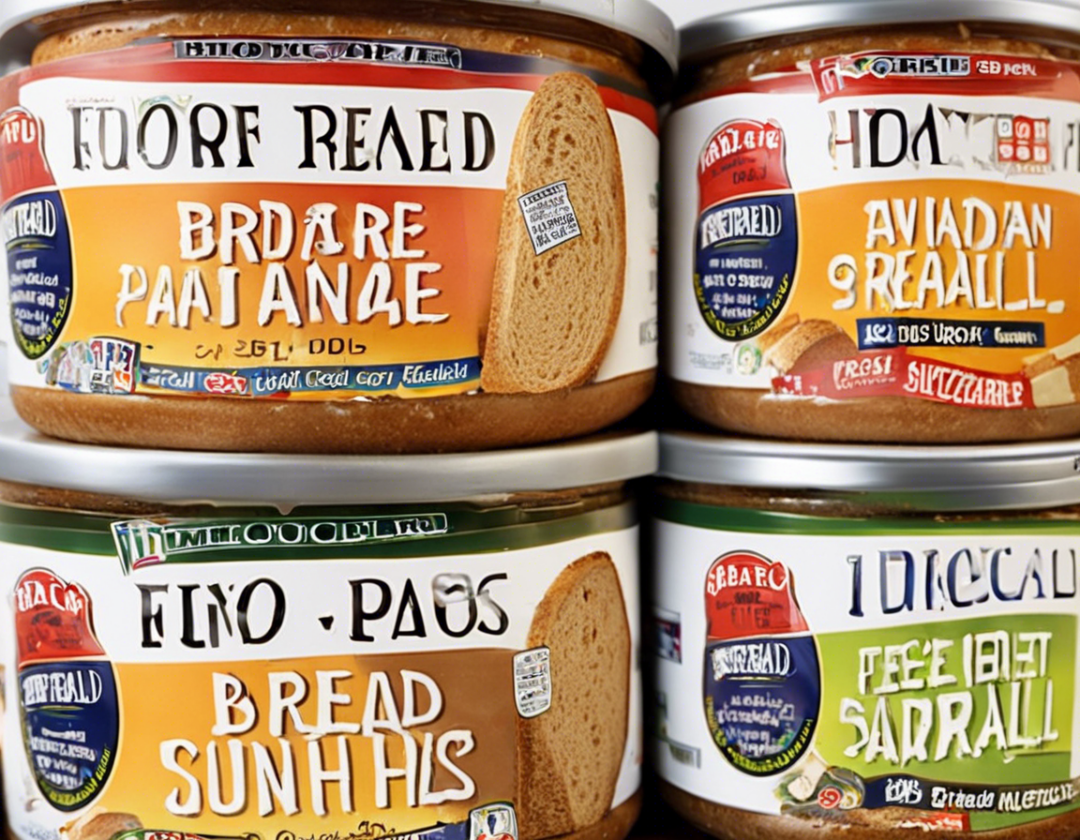Recalled Bread Spread: Important Information for Consumers

In recent times, a concerning issue that has affected many consumers is the recall of bread spread products due to various reasons such as contamination, quality issues, or mislabeling. When a bread spread product is recalled, it can lead to a ripple effect on consumers, retailers, and the brand itself. In this comprehensive article, we will delve into the essential information that consumers need to know when faced with a recalled bread spread product.
Understanding Bread Spread Recalls
Bread spreads are a staple in many households, often enjoyed with toast, sandwiches, or other baked goods. However, when a bread spread is recalled, it raises concerns about its safety and quality. A recall can occur due to various reasons, including:
Contamination:
Contamination of bread spread products can happen due to factors such as microbial growth, foreign objects, or the presence of harmful substances. Contaminated bread spreads pose a risk to consumer health and safety, leading to recalls by manufacturers or regulatory agencies.
Quality Issues:
Quality issues in bread spread products can range from off-flavors or odors to texture issues or spoilage. These issues can impact the taste, appearance, or overall experience of consuming the product, prompting manufacturers to recall the affected items.
Mislabeling:
Mislabeling of bread spread products can result in inaccurate ingredient information, allergen omissions, or incorrect nutritional details. Mislabeling can mislead consumers, especially those with dietary restrictions or allergies, prompting recalls to correct the labeling discrepancies.
What to Do When Faced with a Recalled Bread Spread
If you discover that a bread spread product you have purchased has been recalled, it is essential to take prompt and appropriate action to protect yourself and your family. Here are steps to follow when faced with a recalled bread spread:
Stop Consumption:
Immediately stop consuming the recalled bread spread product to avoid potential health risks associated with contamination or quality issues. Check the recall notice for specific guidance on disposal or return instructions.
Check for Symptoms:
If you have already consumed the recalled bread spread product and experience symptoms such as nausea, vomiting, diarrhea, or other signs of illness, seek medical attention promptly. Inform your healthcare provider about the recalled product.
Contact the Retailer:
Contact the retailer where you purchased the recalled bread spread product. They can provide information on the recall process, refunds, or exchanges. Retailers play a crucial role in ensuring that affected products are removed from shelves.
Report Adverse Reactions:
If you believe that consuming the recalled bread spread product has led to adverse health effects, report your experience to the manufacturer and relevant regulatory authorities. Your feedback can contribute to improving product safety and preventing future incidents.
Stay Informed:
Stay updated on bread spread recalls through official recall notices, news outlets, or regulatory websites. Being informed about product recalls can help you make informed decisions when purchasing bread spread and other food products.
Preventing Bread Spread Contamination at Home
While bread spread recalls can be concerning, there are steps you can take to prevent contamination or quality issues with bread spread products at home. Follow these guidelines to ensure the safety of the bread spreads you consume:
Proper Storage:
Store bread spreads according to manufacturer instructions, such as refrigeration requirements or shelf-life guidelines. Proper storage can help maintain the quality and integrity of bread spread products.
Cleanliness:
Practice good hygiene habits when handling bread spread products, such as washing hands before and after use. Keep utensils, knives, and containers used for bread spreads clean and sanitized to prevent cross-contamination.
Check Expiry Dates:
Regularly check the expiration dates of bread spread products in your pantry or refrigerator. Dispose of expired items promptly to avoid consuming spoiled or degraded bread spreads.
Follow Handling Instructions:
Follow any specific handling instructions provided by the manufacturer, such as stirring bread spread before use, avoiding double-dipping with utensils, or refrigerating after opening. These guidelines can help maintain the quality of the product.
Monitor for Recalls:
Stay vigilant for bread spread recalls by subscribing to recall alerts, following food safety updates, or checking manufacturer websites periodically. Being proactive in monitoring recalls can help you respond quickly if a recalled product is in your possession.
Frequently Asked Questions (FAQs)
1. What should I do if I have already consumed a recalled bread spread product?
If you have consumed a recalled bread spread product and experience symptoms of illness, seek medical attention and report your experience to healthcare providers and regulatory authorities.
2. How can I stay informed about bread spread recalls?
Stay informed about bread spread recalls by checking official recall notices, signing up for recall alerts, following food safety updates, and monitoring regulatory websites for the latest information.
3. Can I return a recalled bread spread product for a refund?
In most cases, retailers offer refunds, exchanges, or store credits for recalled bread spread products. Contact the retailer where you purchased the product for specific return instructions.
4. Are all bread spread recalls due to contamination?
Bread spread recalls can occur due to various reasons, including contamination, quality issues, mislabeling, or other safety concerns. It is essential to follow recall notices for specific details on the nature of the recall.
5. What steps can I take to prevent contamination of bread spread products at home?
To prevent contamination of bread spread products at home, practice proper storage, cleanliness, check expiration dates, follow handling instructions, and monitor for recalls regularly.
In conclusion, being aware of bread spread recalls, understanding the reasons behind them, knowing how to respond to a recall, and taking preventive measures at home are essential aspects of ensuring food safety and quality. By staying informed and proactive, consumers can navigate bread spread recalls effectively and protect themselves and their families from potential risks.








